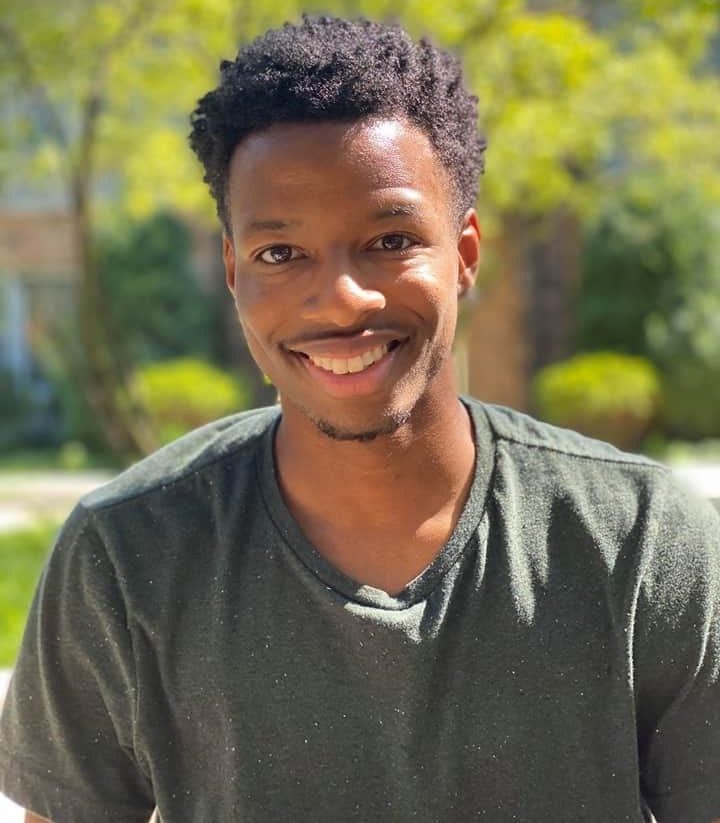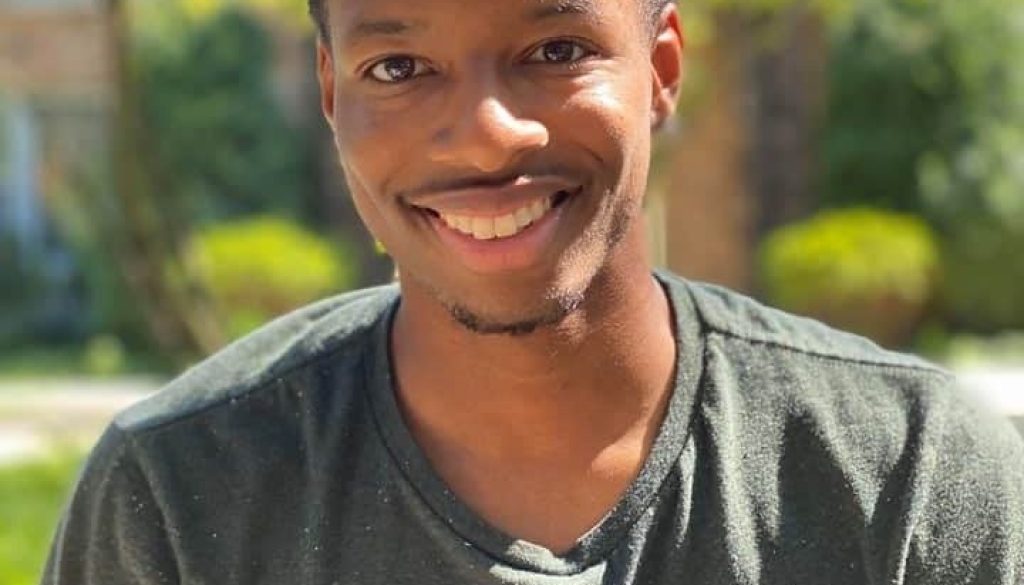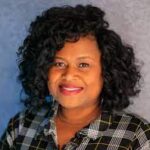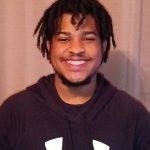Optimist and ‘troublemaker of the best kind…’

Brandon Ford transferred from the Pattonville School District to Clayton as a middle school student. He and his two older sisters are Clayton High School graduates. His father, Barry Ford, was a popular physical education instructor and coach for many years. Brandon, who attends Northwestern University and envisions a career in education, recently initiated a petition drive that urges better treatment for minority students. Below are excerpts from an interview with Richard Weiss about his experiences and activism.
Weiss: Are you glad that you attended the Clayton Schools?
Ford: Yes, I am glad because of Clayton’s academic resources and excellent reputation, but sometimes I wish I’d stayed in Pattonville schools because visibly, there were more Black high-achievers, and I don’t think I would have felt as alone in my advanced classes as I did at Clayton schools. For example, I recently clicked on Pattonville School District’s webpage and saw a photo of a Black student who participated at the National Speech and Debate Association tournament. She competed in the Informative Speaking category and presented a speech on natural Black hair.
Is that an activity that I can see the Clayton district guiding and teaching a Black student through and then openly praising the student after successful completion? My honest answer is no, not yet. Clayton praises multiple students annually who earn perfect ACT scores and become National Merit Scholars. Those students are rarely Black.
Weiss: What were the most difficult challenges you experienced in Clayton schools?
Ford: Even after I chose to attend Clayton schools, I felt different from fellow Black students. Either my Black counterparts were “otherized” as a result of coming from poor or working-class families from Normandy and St. Louis, or they were from Clayton, wealthy, and a little out-of-touch from the code-switching Black middle class that I was accustomed to seeing. There was no middle ground, no Black middle class while I was a student there. It seemed as though each Black family tried to compete for itself in a sea of whiteness. I felt lost, and there was no organization in the district where Black stories like mine could be told and reflected upon.
Weiss: You were in the Class of 2016. That was the year that Donald Trump was campaigning for president. Was that year particularly difficult because of that circumstance?
Ford: I believe that the majority of my classmates quietly rejected Trump and viewed him as a non-threat at that time. I guess Clayton appeared as shocked that Trump was elected as any liberal city in America that November, but by that time, I was living in a college dorm room and out of the Clayton bubble.
The political event that was more contentious during my time at Clayton was the murder of Michael Brown in 2014 days before classes began that year. There was speculation about Michael and Ferguson, which came to a head in November when the grand jury decision came out, and Clayton barricaded itself from the civil unrest. That year was difficult, especially for Black students who experienced the murder and continued protests as traumatic because I don’t believe the district was prepared with the tools – such as the social workers it has now – that it needed to facilitate proper dialogue around the subject. From my experience, conversations were limited to opinionated remarks in class about whether the protests were justified.
Weiss: Would you say that racial equity in Clayton has gotten better or worse?
Ford: I think Clayton has progressed on a similar track with America as a whole when it comes to racial equity and that the two can be compared side-by-side.
Clayton High used to be a nearly all-white district before implementation of the area-wide desegregation program in the 1970s. My father received a job offer in the late ’80s, an extension of Clayton’s desegregation efforts. When I graduated, we had a Black superintendent and a Black director of Counseling Services. I still observed that Black students, particularly those in the desegregation program, were tracked out of advanced classes, guided away from elite colleges and universities, and sent to ISS (in-school suspension) for trivial reasons such as leaning on the metal bars in the CHS cafeteria. I remember during my time at CHS, there was an altercation between two Black students at the Center of Clayton recreation complex. Consequently, all Black students were turned away periodically from entering the door that connects CHS to the Center after school hours. As there were few other after-school options for Black students, a number of students said that it felt unfair for them to be punished despite not being involved in the altercation.
Overall, American institutions claim to support the Black community but refuse to modify their structures of racial capitalism that value profits over people. Those who desire real change understand that schools can be a means by which we teach young people to weigh history and help society overcome racial and economic inequities – a necessary step in unifying students who are Black, white, or from other racial backgrounds.
Weiss: What were the recent events that made you step up and involve yourself in a petition effort?
Ford: I saw a former classmate’s social media post about being called a racial slur and facing harassment from another student and his comrades during our senior year. As an alum of Cultural Leadership, (which brings students together to look at social justice issues through the lens of the Jewish and African-American experience), I used my training to help develop a petition. It covered every base in its attempt to deliver justice and equity for that individual student and every other Black student in the Clayton School District.
When I helped contribute to the petition, I asked myself: What is the Clayton School District that I want to see? My answer was that I want to see Black students thrive academically and culturally at every school in the district and then ultimately receive the great college opportunities that are routine for white and Asian families. To accomplish this, I helped make it a point in the petition that school communication between the District and Black families would need to improve; the mental health needs of Black students would have to be recognized and supported; tools for Black student academic success would have to be expounded upon; and student resource officers, police presence, and intensely racialized disciplinary measures such as ISS, OSS (out-of-school suspension), and detention would have to be phased out, abolished, and replaced by restorative justice models.
The petition essentially states that the Clayton School District ought to take action by offering Black student scholarships in addition to free Black standardized test prep and academic tutoring services if it wants to reach its standards of diversity and inclusion. Relatedly, as I told Clayton alumni petitioners and administrators during our meeting in June, Black people in America are owed reparations in some form or another, and pursuing equity means that we must pour extra resources into marginalized communities if we want to close the gap.
It seemed as though while drafting the petition, I was writing a story in my head. I love how the petition turned out, and I choose to be optimistic about its application by default. My Cultural Leadership experience taught me how to be an activist, a Black ally to Jewish students, a troublemaker of the best kind even in potentially harmful environments, and an optimist who truly believes that Black liberation is possible in our schools, in American society, and around the world.
In recent months, it hurt for me to witness the disproportionately negative effect that COVID-19 has had on Black communities, as well as the anti-Black and unjust murders of Ahmaud Arbery, Breonna Taylor, and George Floyd. I was determined to figure out how I could impact change while limited to home during the pandemic crisis. I figured, why not start with helping my former classmates petition Clayton schools, a place I hold near and dear to my heart?




